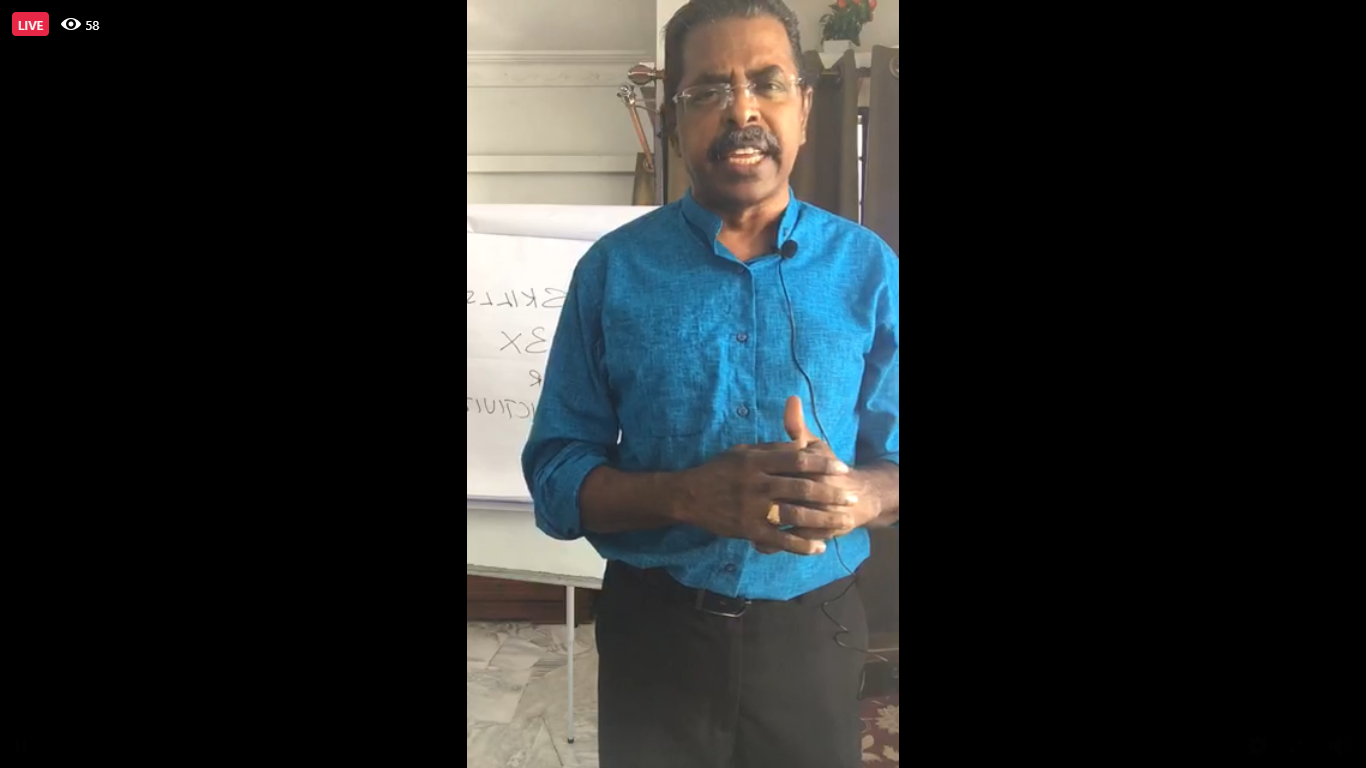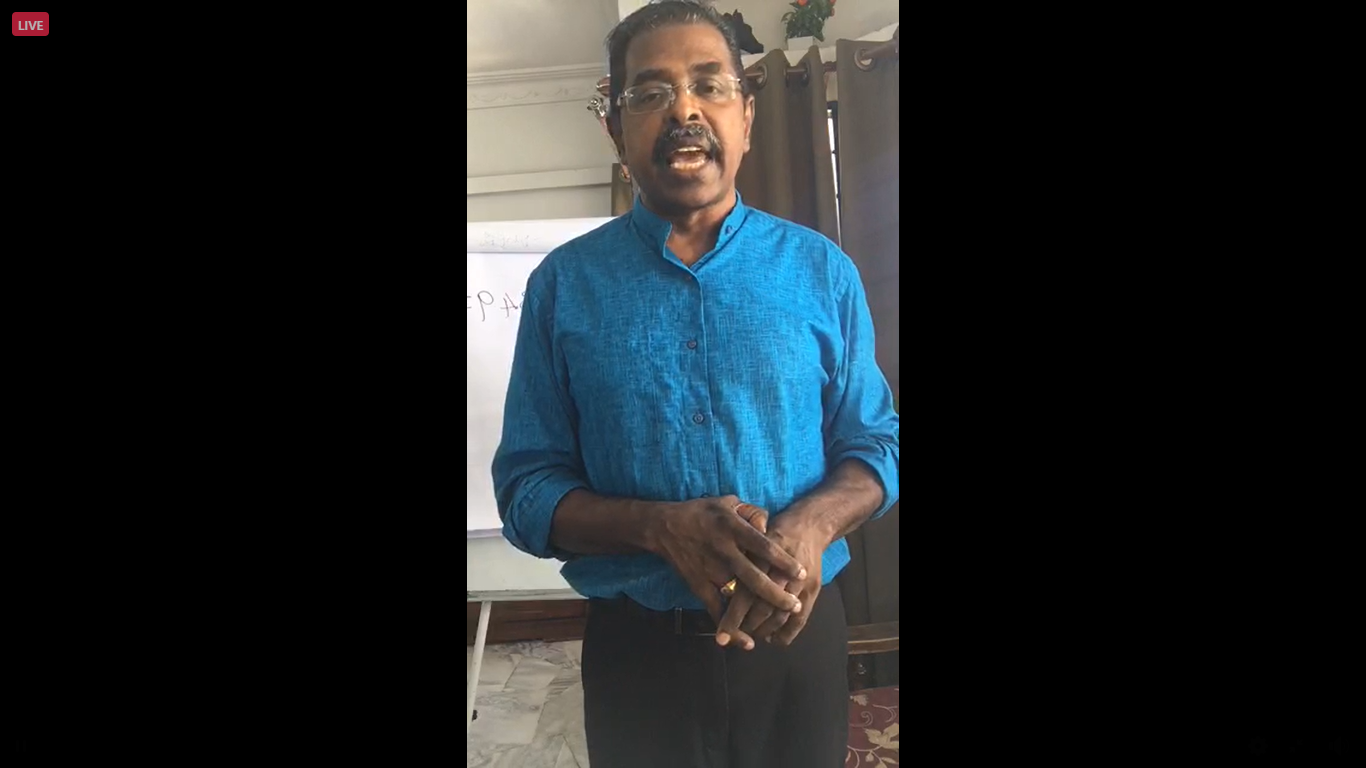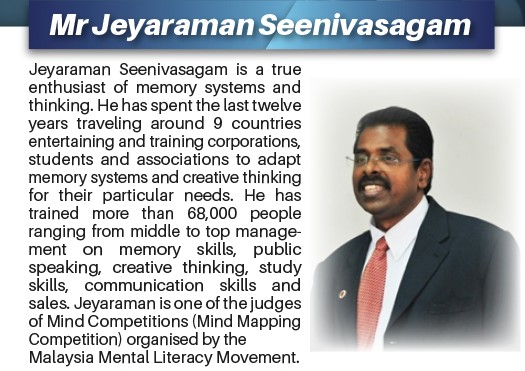

Jeyaraman
explaining his points
It can be difficult to constantly
remain productive, or to even start being productive for that matter.
Regardless of students or working adults, almost everyone has a hard time
motivating themselves to be productive. Thus, to help the students and staff
improve their productivity, UTAR Centre
for Corporate and Community Development (CCCD) in collaboration with Malaysia Mental Literacy Movement (MMLM) organised a webinar titled
“Mind Skills to Triple Your Productivity” on 25 August 2020 via Facebook
Live streaming.
The webinar was hosted and given
by Jeyaraman Seenivasagam, a memory system and thinking enthusiast. He is
also one of the judges of the Mind Competitions (Mind Mapping Competition)
organised by the Malaysian Mental Literacy Movement (MMLM). In the webinar,
he covered five topics, namely “Understanding How to Manage Productivity”,
“How to Use Mind Mapping as a Mind Tool to Become More Productive”, “The
Easiest Way to Instantly Become More Productive”, “How to Make Smart
Decisions” and “Mind Mapping to Enhance Productivity”.
Jeyaraman began the webinar by
explaining how to manage productivity. “A lot of people do not have a
systematic approach to doing things, but rather they follow their feelings
which is why they are not productive. Some also say that with good time
management comes good productivity. However, that is not the case, as you
cannot control the time, but you can control your attention and focus. If
you focus on trying to complete the task, you can become super successful
and productive,” said Jeyaraman. He added, “You do not have control over the
energy that you have, but you should use much of it productively. Basically,
if you take your energy and “invest” in it, you will gain good returns, that
is you will be more productive and successful.”

Jeyaraman answering
the participants’ questions
He then explained the easiest way
to instantly become more productive and how to make smart decisions at the
same time, in which he pointed out four categories that could help. “The
first category is “Decisions”. Unproductive people are not good
decision-makers, since they spend most of their time trying to decide and
delay, which can worsen the decisions made. Thus, to avoid this, you should
always remember this quote by Colin Powell, ‘It is easier to make the
decision right than to make the right decision,’ which basically implores
you to never complicate or try to make the perfect decision, but make the
decision better as you move on,” said Jeyaraman. He also noted, “The second
category is “Choices”. For this, you should remember the ATM analogy. Just
like how an ATM has simplified the process for users to allow them to make
easy choices such as withdrawing money and checking our account balance, we
should learn to simplify the choices in life. Just as we simplify our
decisions, we have to learn to simplify our choices, so that we can become
more productive instead of wasting our time delaying and procrastinating
with our choice-making.”
Jeyaraman continued by explaining
the third and fourth categories, whereby he explained, “The third category
is “Deadlines”. There are two types of deadlines, soft and hard deadlines. A
hard deadline is one with a fixed time, like an exam, while a soft deadline
is the time in between the hard deadline and is flexible, such as the time
taken by a student to answer the questions in an exam. When faced with a
hard deadline, it is up to you how you will plan your soft deadlines and you
can learn to be productive by achieving your soft and hard deadlines. The
last category is ‘Get into the flow’, which means you start to go into a
momentum of doing a task. ‘Getting into the flow’ is something that is
planned; you can decide to go into the flow for three hours in the morning
with no interruptions such as checking your message notifications or your
social media, with five-minute breaks every so often to relax the mind. You
achieve much more when you get into the flow, compared to if you do your
work in bits and pieces.”
Lastly, he briefly talked about
using mind maps to increase productivity. According to him, with the use of
a mind map, you can easily come up with points and have a general sense of
what you want to do. Jeyaraman gave an example of writing an essay and said,
“You can list out your points in a mind map first and then refine the points
as you go on.” Quoting Colin Powell, he said, ‘It is easier to make the
decision right than to make the right decision.’ Thus, by having a mind map,
you can increase your productivity as you have ideas on how you would like
to do your work and it simplifies your decision-making as well.”
The webinar ended with a quick Q&A
session.

A brief biography of Jeyaraman’s background
Wholly owned by UTAR Education Foundation Co. No. 578227-M LEGAL STATEMENT TERM OF USAGE PRIVACY NOTICE